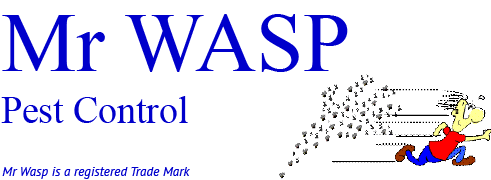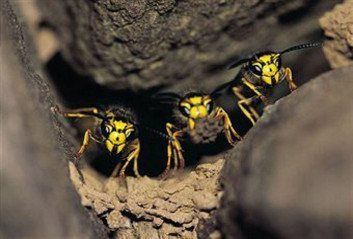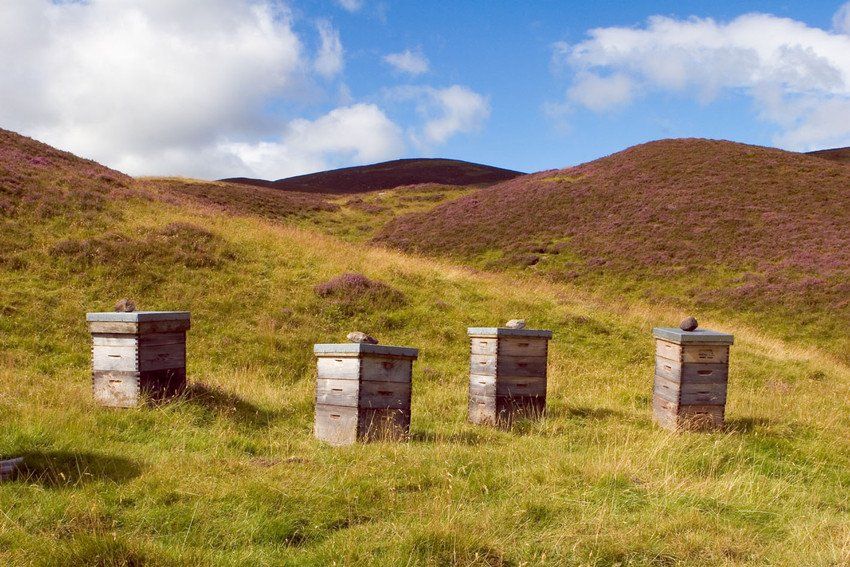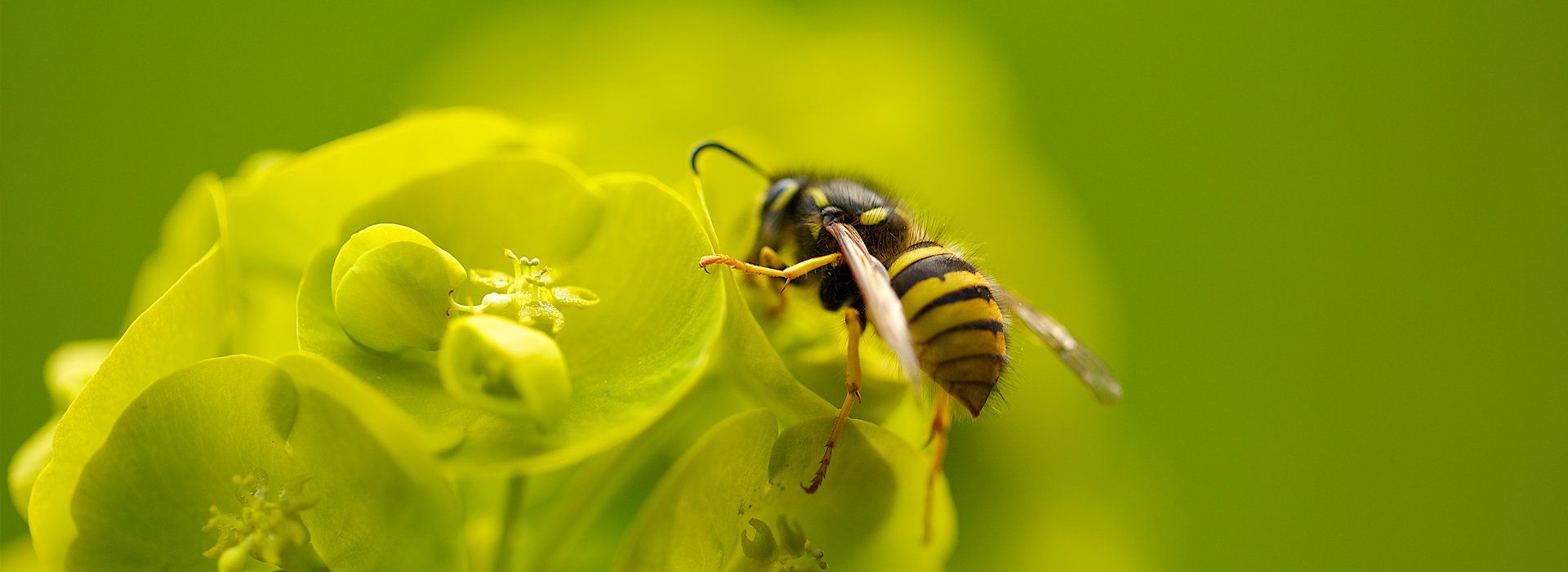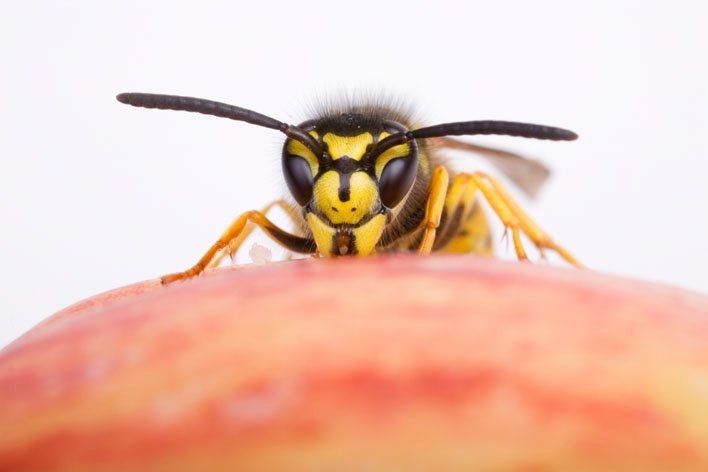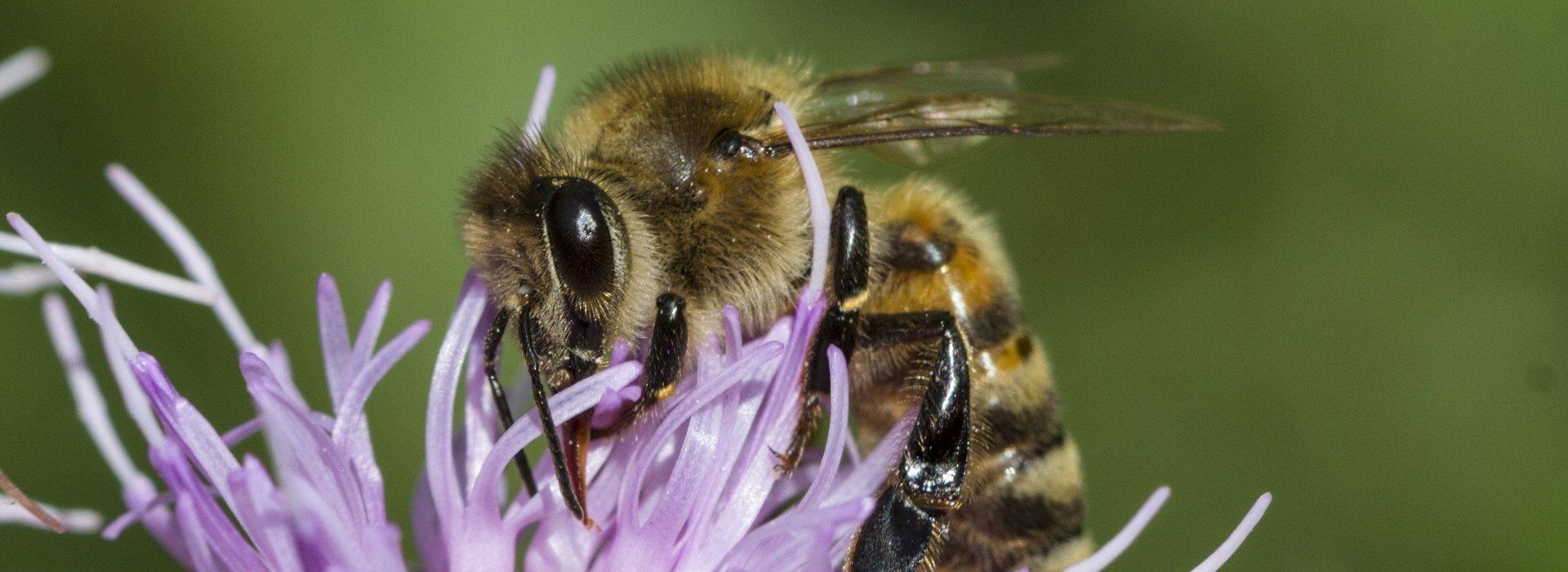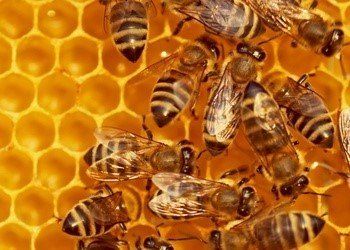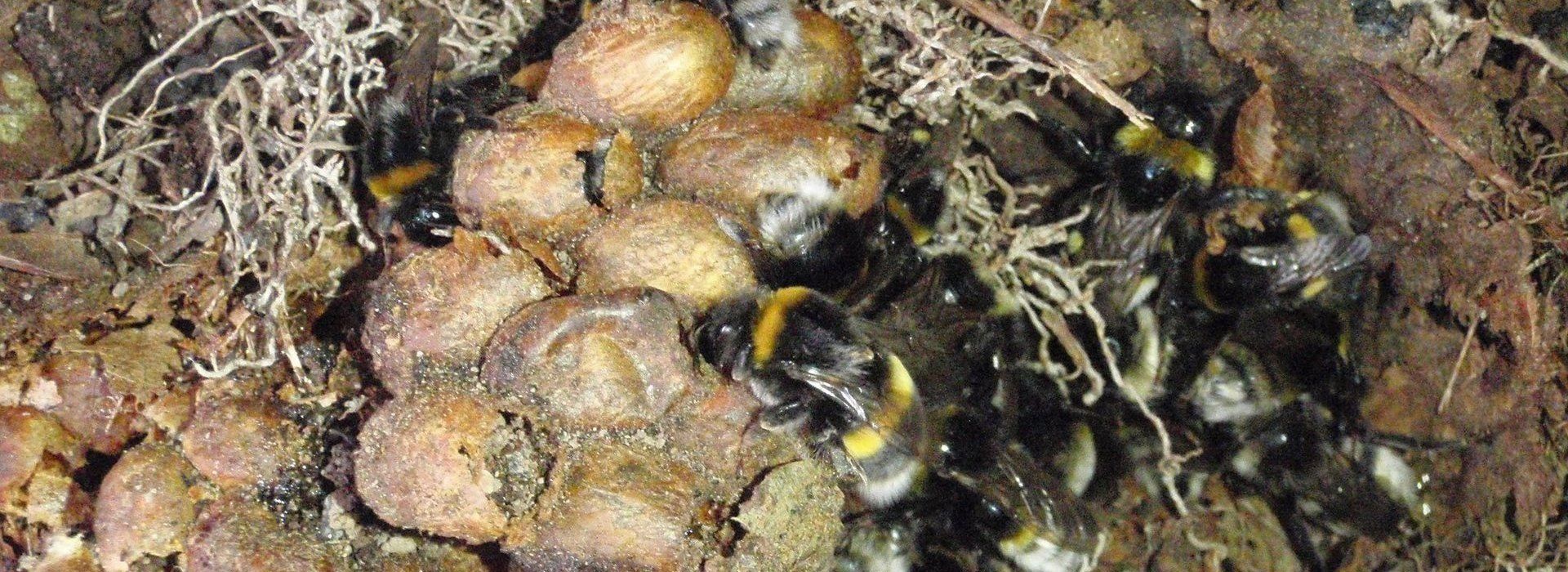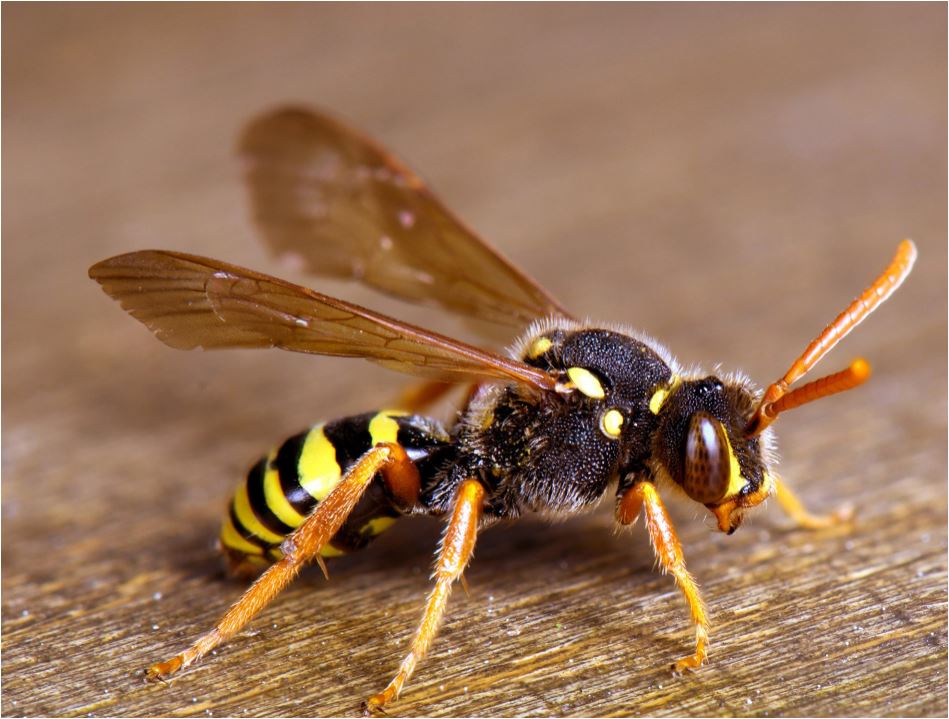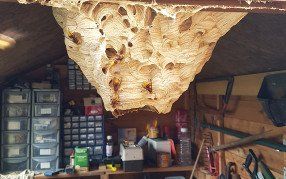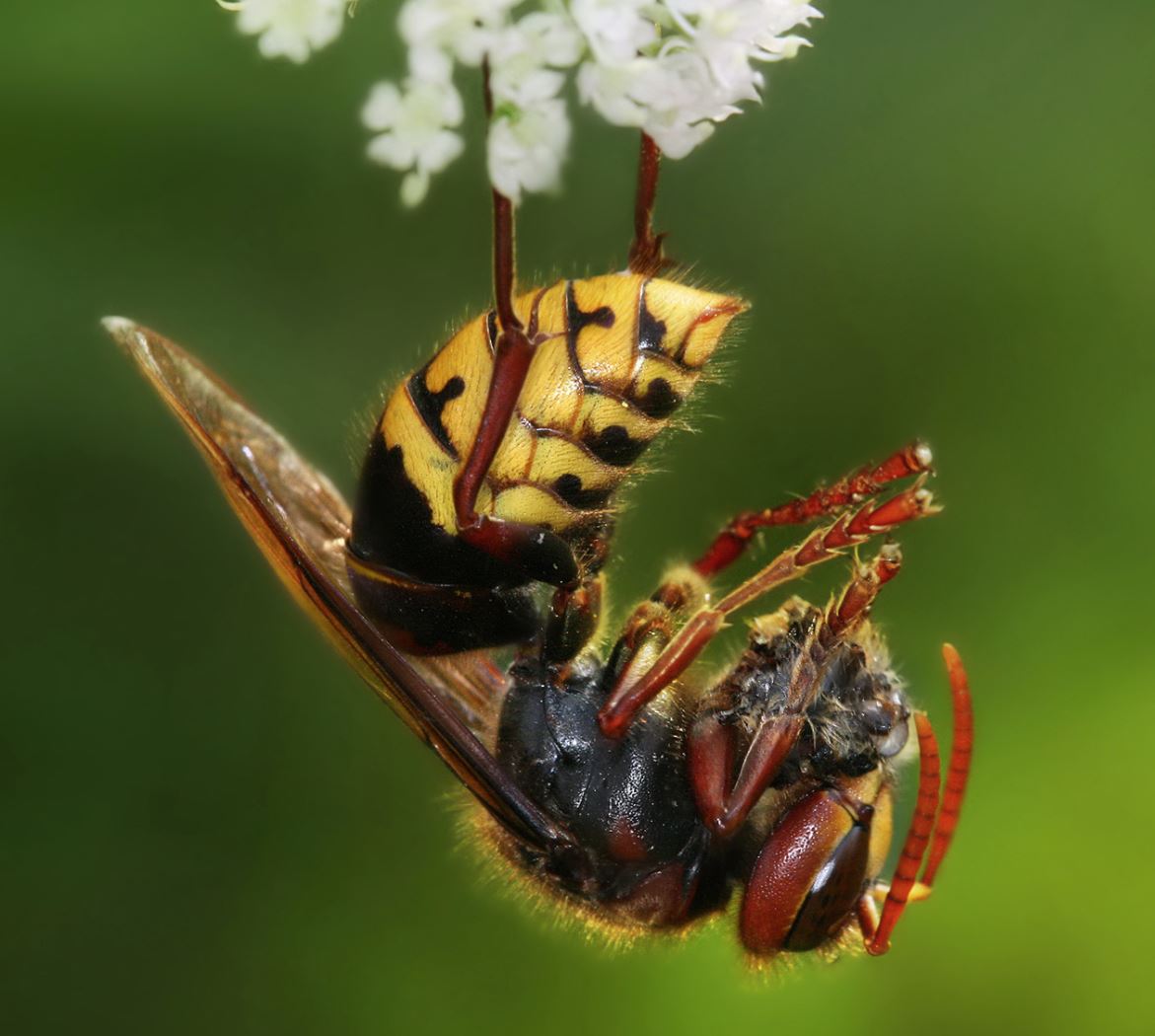Everything You Need to Know About Wasp Control
As pests go, wasps are likely to rank amongst people’s least favourite to deal with, not to mention the fact that they can be dangerous. Whether they’re ruining a picnic, buzzing around the garden or being a nuisance inside your home, having wasps around is enough to put most people on edge. If you’ve noticed a lot more wasps around your property than usual, chances are there’s a wasp nest somewhere nearby.
Wasp nest removal should always be carried out by the professionals, but you may have a lot of unanswered questions about how the whole process works. See below for a handy guide outlining the wasp control process, how the extermination will be carried out, and what you can do to prevent wasps returning in the future.
What is a wasp’s nest?
There are over 7,000 species of wasps in the UK alone, but only nine of these build nests for themselves and their colony. Some nests are built in natural structures like trees, but wasp colonies are increasingly finding man-made structures to build their nests in.
Wasps need somewhere dry, safe and structurally sound enough to support a nest, so it makes sense that some would choose indoor barns, attics or garages. Wasps are most active in the summer, and like bees, colonies have a queen as their figurehead. Nest building begins when the queen wakes from hibernation; after finding a suitable location she will begin to build using wood mixed with saliva to make a pulp. The queen then lays eggs in the nest cells, which will become the first worker wasps once they hatch. They will continue to build the nest as the queen lays more eggs and the colony expands.
Why are they dangerous?
Many wasp nests go undetected for long periods of time, especially if they are built in a rarely used space like an attic. Wasps can become aggressive, especially if they believe their nest is under threat, so trying to remove the structure yourself could result in multiple stings which can be very painful. Some people are not aware they are allergic to wasp or bee stings too, and getting stung in this instance can be very dangerous, causing redness, swelling or anaphylactic shock. Children, the elderly and pets are particularly vulnerable to wasp stings, so if you’re worried about your property or family members it’s likely you’ll want to call home pest control.
If a nest is particularly large it can also cause structural damage to the building, and some nests are even built within holes in the brickwork. A wasp nest in a garden or other outdoor area can be left alone if you choose, however, if you own a shop or business then the problem should be dealt with as soon as possible as it could pose a risk to public health and safety. During peak activity times (usually late summer), nests can contain up to 5,000 wasps, so wasp removal can become an urgent concern.
As mentioned above, threatened wasps can become very aggressive and start to swarm, which can be dangerous. You should never try to remove a nest yourself or block up the entrance. Blocking an entrance/exit to a wasps nest causes the wasps to become agitated and try to find another way out, which can do more damage as they try to chew through the walls of the house.
Not all wasp nests need to be removed, but the nest and the wasps inside will need to be treated by a professional. A member of a pest control organisation will be able to identify the species of wasp present, and the best course of action. All pest technicians will also have special gear to protect them from stings, and a range of treatments to kill off the wasps. They usually offer the option to remove the nest a few days after the treatment has taken place, but this may not be possible if the nest is heavily embedded into the structure of the building.
Wasps will never use an old nest and will build a new one every year so they won’t return to the old structure, however, this does not guarantee that they won’t build a new nest nearby.
If the nest is on the small side or in a quiet corner of the garden you may even want to consider leaving it alone; wasps can be beneficial to the environment as they feed their grubs on caterpillars and other insect pests.
The stages of extermination
Once the location of the nest and wasp species has been identified, pest controllers are most likely to apply a professional insecticide to treat the problem. All exterminators will have been trained in how to use these insecticides, which are not available on the high street and can be very toxic if used incorrectly.
Pesticides can come in a spray, dust or smoke form, and are placed at the entrance to the nest. As wasps return to the nest they become contaminated with the insecticide which is then brought into the nest itself. It takes a few minutes for the pesticide to kill off the individual wasps, so there’s time for them to contaminate more of the nest area before they die. The dust or spray stays potent for several days, so as more wasps return to the nest, they too will expire. In most cases, all the wasps will be dead by the end of the day; the more wasps that return bring more of the pesticide into the nest, increasing the effects of the poison.
In some cases a nest may need to removed as quickly as possible for safety reasons; in these cases, pest controllers will usually use a type of foam application which kills the wasps immediately. However, this is only suitable to use if the whole nest is visible, and any wasps that are out away from the nest will not be dealt with.
Once the wasps have been exterminated, the nest won’t pose any threat but you may wish to have it removed if it looks unsightly. Most pest controllers can come and remove the nest after a few days for an extra charge.
Prevent wasps from returning
There’s no foolproof method to prevent wasps from building a nest if they’ve found a suitable place, but there are some precautions you can take to make it less likely. Keeping your home secure and closing windows and doors can discourage wasps from entering your home or finding a cosy place to nest. Of course, this isn’t always possible during the hotter months but you can invest in fly screens to keep wasps out and still allow air to circulate.
Open bins will attract greedy wasps, especially during summer; so make sure your bins are securely closed and ideally kept away from the house. It’s also wise to do a quick check in early spring for any signs of a wasps nest, especially if you’ve had to deal with one previously. At this time they’ll usually be a lot smaller (around the size of a golf ball) and easier to deal with. Check attics, garages, sheds and other nooks and crannies.
If you have a wasp’s nest problem and are looking for pest control services you can trust, give Mr Wasp a call. Our team of professional wasp exterminators are available 24/7, 365 days a year, so your problem can be dealt with quickly and efficiently. Our removal processes are safe, unobtrusive and effective, and can be tailored to any type of property. With over 35 years of experience, we’re more than well equipped to deal with wasps, bees and hornets; visit our website today for more information and enjoy a stress-free summer.
